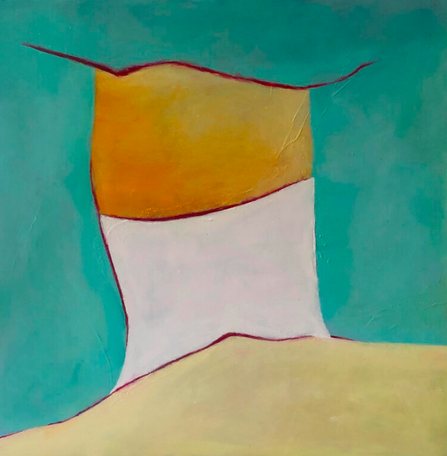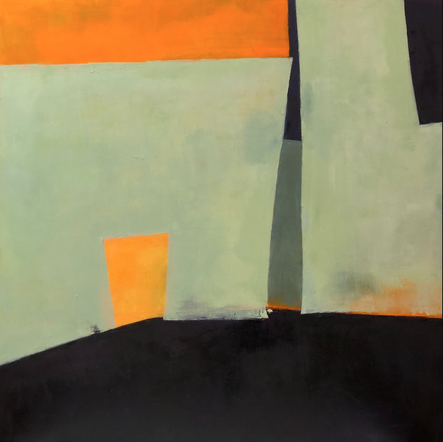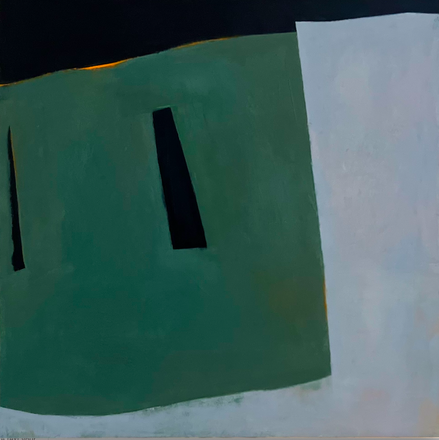|
Dwelling in Delight The more you study delight, the more delight there is to study. Ross Gay, The Book of Delights The majestic maple’s changing colours shout look at me in a way that makes it impossible not to grin even as some docile despair gathers, like old socks, around the ankles. Where the house meets the dirt, some wriggling red worms line up in the dappled yellow of a new day. This abode holds what matters most and ignores the barking coming from the side yard. Wayward joy contains the realness of things, but holds the kindling lightly so oxygen can whisper to the flame resist — be stubborn in your gladness. The wind throws a fit, but this domicile stands. In the before now, this home was enveloped by clouded uncertainty. Even when the sky sang the lapis of a lagoon, the discordant melody fell flat, tumbled in one ear, out through the lungs. But today, this dwelling shines. In childhood, mirth and misery appeared as angry antonyms on the playground and on Looney Tunes. But they’ve always lived in the same house, just different floors. Even when life sings a sorrowful song, don’t be confused. Turn on the lights and study delight. Do this. Mind Metropolis While birds build nests, we write alphabets of their trees. In skyscrapers, the steel beams, like massive twigs, envelop and protect us in a vocabulary of shelter, place. The hills and valleys of the metropolis create shadow, refract the warm light like gleaming mountain lakes. Dichotomous childhood tales of urban and rural rodents highlight only distinctions, but I have seen sunrise-painted skies evoke magic in the mountains and from urban balconies. We can be lost, found, saved or forgotten everywhere we go. Can you recall the exact tones and tunes of traffic or ocean waves, a moment’s particular echoes and silhouettes at dusk, secrets felt in alleys and neural paths – scents of coconut lime treats. I have heard roosters crow in mountainous Monteverde and in a Saigon hotel room, high up above the bustling streets. And in half-sleep notice the newborn sunlight on my morning sheets. All our places leave inner souvenirs – traces of coastal saltwater in our genes. Some boroughs and bogs we can only visit again in our heads. But a known quality of radiance can peek through in unexpected ways, a minds-eye homecoming to a specific street, a morning in a drafty kitchen. All those particles of ash and smog, smells of wet soil and peat form a now of then, the cyclical motions of wash, rinse and repeat. Was the grief worth the poem? No, but you don’t interrogate a weed for what it does with wreckage. For what it’s done to get here. Hala Alyan To Get Here It’s vertigo, plain and simple – the sky spinning under my toes, the same feet that touch summer grass and pavement heat. Where are you from?, they say. We are from a house of longing, a garden full of flowering weeds, where Persian green, black and goldenrod meet. Grief congeals in the lungs, while the past coats the hips, but it’s the shin bones that splinter in the escape, fuse together, never quite heal. Though you walk with a limp, the paintings and poems rush from your fingertips. Small shoots of caper spurge and wild carrot emerge triumphant, weeds in name only. It costs too much to leave the rubble, arrive from across oceans, or even from another side of town. From the compost pile, improbably, roots grow toward the night sky. Ellen Skilton Ellen Skilton’s poetry has appeared in The Dewdrop, Cathexis Northwest Press, The Scapegoat Review, Dissident Voice, Philadelphia Stories, Red Eft Review, and The Dillydoun Review. In addition to being a poet, she is an excellent napper, a chocolate snob, a swimmer, and lives in Philadelphia with Zoomer (her dog), Katniss (her cat), and some lovely humans.
0 Comments
Your comment will be posted after it is approved.
Leave a Reply. |
The Ekphrastic Review
COOKIES/PRIVACY
This site uses cookies to deliver your best navigation experience this time and next. Continuing here means you consent to cookies. Thank you. Join us on Facebook:
July 2024
|






